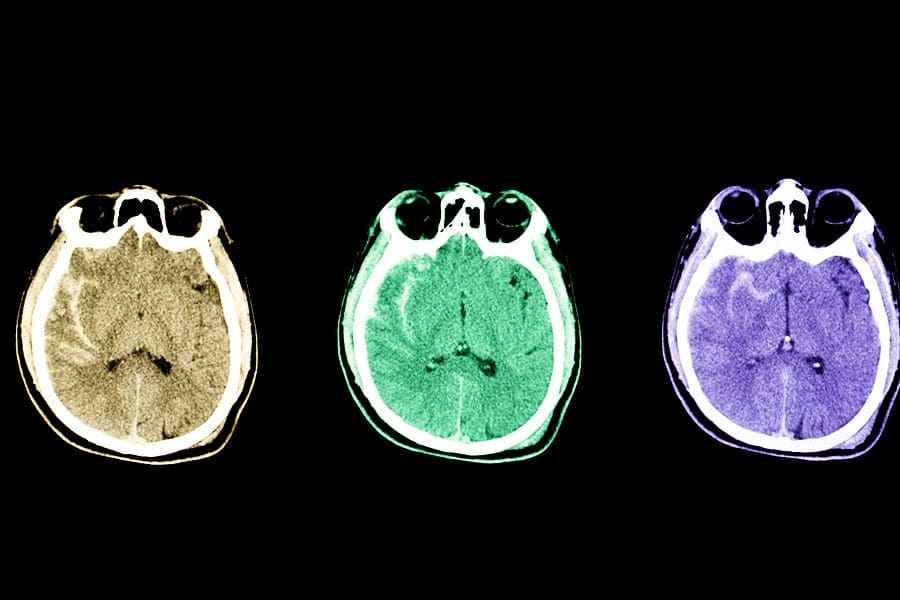JONES LAW GROUPYour Lawyers for Life! Personal Injury Law Firm in St. Petersburg

There aren’t many injuries worse than a traumatic brain injury (TBI). A TBI is catastrophic because it can rob a victim of their ability to perform the most basic of tasks, much less enjoy any quality of life. Simply put, the consequences of traumatic brain injuries can be devastating and hard to handle alone. The […]
Call our personal injury law office directly at (727) 512-9847
At Jones Law Group in St. Petersburg, FL, we would like to hear from you. Contact us for a free personal injury case consultation.
Call our personal injury law office at (727) 512-9847
Get educated on the Florida's personal injury laws and more.
There aren’t many injuries worse than a traumatic brain injury (TBI). A TBI is catastrophic because it can rob a victim of their ability to perform the most basic of tasks, much less enjoy any quality of life. Simply put, the consequences of traumatic brain injuries can be devastating and hard to handle alone.
The Jones Law Group has a team of attorneys who will fight to help you obtain maximum compensation if you or a loved one suffered a TBI due to someone else’s negligence. Our firm isn’t a settlement mill – we’ll put in the work it takes to ensure you get every penny you have coming. Jones Law Group has a team of legal experts who will investigate your accident and gather the evidence needed to make your case as strong as possible.
You can schedule a free consultation by calling (727) 571-1333 or contacting us online.
A TBI occurs when a sudden injury to the head, such as a penetrating wound, a jolt or a severe blow, disrupts the brain’s normal functioning. TBIs can range from mild to severe and affect a person’s cognitive, physical, and emotional well-being. Some common causes of TBIs include slip and fall accidents, car accidents, sports-related injuries, and assaults.
Symptoms of TBI can vary depending on the severity of the injury and can include headaches, dizziness, confusion, memory problems, mood changes, loss of consciousness, and changes in sleep patterns. In severe cases, TBI can result in permanent disabilities, such as loss of mobility or speech, and may require ongoing rehabilitation and support.
TBIs can result in significant medical expenses. The cost of a TBI can include emergency medical care, hospitalization, rehabilitation, medical equipment, and ongoing care and support.
Due to the high cost of TBI-related medical care, many people may struggle to pay their medical bills and fall into medical debt. This can be particularly true for those without adequate health insurance coverage, as many insurance plans have high deductibles and copays that can add up quickly.
Suffering a severe TBI can also result in significant lost wages, as the person may not be able to work or may require a reduced work schedule. The severity of the TBI can play a significant role in determining the impact on their ability to work. In some cases, a person with a TBI may need to take time off work to recover. In other cases, they may be unable to return to work.
Lost wages can significantly impact a victim and their family. They may find it almost impossible to make ends meet without a steady income. In addition, lost wages can contribute to financial stress and increase the risk of financial problems, such as mortgage delinquency.
Sleep disturbances due to a TBI can also significantly impact a person’s overall health and well-being. These disturbances can take many forms, including difficulty falling asleep, staying asleep, and waking up feeling refreshed.
Many factors play a role in causing TBI victims to have difficulty sleeping. This includes changes in brain function, physical pain and changes in sleep patterns. In addition, individuals with TBIs may experience increased anxiety and stress. Increased anxiety and stress can also contribute to a lack of quality sleep.
TBIs can also significantly impact an individual’s ability to perform daily activities. Impaired movement issues include weakness, difficulty with coordination and balance, and changes in muscle tone.
A TBI can damage the brain and the nervous system. This leads to changes in muscle tone and the ability to coordinate and balance. These changes can impact a victim’s ability to perform basic tasks. The ability to bathe, cook, or clean on one’s own can result in decreased independence and quality of life.
Cognitive dysfunction after a TBI can result from damage to the brain, including damage to specific areas responsible for specific cognitive functions. Dysfunction can also result from physical and emotional changes related to the TBI. Examples include changes in sleep patterns, increased stress and anxiety, and physical pain.
Cognitive issues stemming from a TBI can limit an individual’s ability to think, learn, and remember information. This can result in decreased independence and quality of life. These issues can also make it difficult for victims to manage finances and complete household tasks.
TBI is also linked to an increased risk of developing certain neurodegenerative diseases, such as Alzheimer’s disease and Parkinson’s disease.
Neurodegenerative diseases result in the progressive decline of the structure and function of the brain. These diseases can cause problems with thinking, memory, and movement and can destroy an individual’s quality of life.
Anxiety and depression are common mental health problems that can occur after a TBI. Anxiety can result from changes in brain function and the physical and emotional changes associated with TBI. Depression can result from the impact of TBI on daily life. The ability to perform daily activities, as well as changes in brain chemistry and function, can also lead to mental health issues.
In addition to the physical and cognitive changes associated with TBI, the emotional and psychological stress of living with TBI can also contribute to developing anxiety and depression. This can include stress related to the recovery process, relationships, and financial or employment status changes.
If the TBI occurred due to the negligence or wrongdoing of another party, a personal injury lawsuit might be necessary to recover total compensation. In this case, it’s essential to work with an experienced personal injury attorney to build a strong case and negotiate a settlement that considers the full extent of your losses, including the impact on your quality of life.
Please get in touch with a Jones Law Group personal injury lawyer to learn more about how we can help. You can use our online contact form, or you can call (727) 571-1333 for a free evaluation of your case.

Facing a DUI accident in Tampa Bay? This step-by-step guide from Jones Law Group’s top DUI accident lawyers outlines essential actions to protect your rights, gather evidence, and secure compensation under Florida law. Serving St. Petersburg and the Tampa Bay area—contact us for expert help today.

My Child Was in a Car Accident – What Should I do? According to the Centers for Disease Control, there are approximately 150,000 children that are injured each year in traffic accidents.[1] Unfortunately, that estimate is probably understated. What is the reason for the understatement? According to recent studies, small children are more susceptible to […]

So you have been involved in an accident. You were not in perfect condition before the accident. Perhaps you had an old injury to your back. Perhaps your prior back injury had not flared up in years or perhaps you noticed minor pain only when performing certain activities. After the accident, you notice that the […]

E-bike accidents in Florida are surging. Learn Florida’s e-bike laws, common accident causes, what to do after a crash, and your legal rights as a rider.

Were you hurt in a motorcycle accident, a slip and fall, or any other accident caused by someone else’s negligence? If so, you might be taking legal action to pay for your medical bills, lost wages, and other accident-related expenses. It’s only natural that you’d want to know how long it will take to receive […]

Why Won’t My Car Accident Lawyer Sue an Uninsured Driver? According to the Insurance Information Institute, 26.7% of Floridians have no insurance. That means if you get in an accident in Florida, there is a very good chance the person that caused the car crash will have no insurance. This could potentially leave the innocent […]
Speak with us before time runs out! In Florida, you have a limited window to file a personal injury case, so speak to an Attorney today.
Call our personal injury law office directly at (727) 512-9847
Jones Law Group is a dedicated personal injury lawyer in St. Petersburg, FL, serving the Tampa Bay area since 2006. Our experienced attorneys specialize in car accidents, slip and fall cases, employment law disputes, construction law issues, and overtime wage claims, fighting for maximum compensation on a contingency fee basis. Contact us for a free consultation to discuss your case.
Call our personal injury law office at (727) 512-9847
© Copyright 2006–2025 Jones Law Group Attorneys at Law. All rights reserved. Privacy Policy Terms of Use
Attorney Advertising.
The information on this website is for general information purposes only. Nothing on this site should be taken as legal advice for any individual case or situation. This information is not intended to create, and receipt or viewing does not constitute, an attorney-client relationship. Past results do not guarantee similar outcomes.
Are you injured or wronged and interested in a consultation? Fill out the form for a free consultation with us.